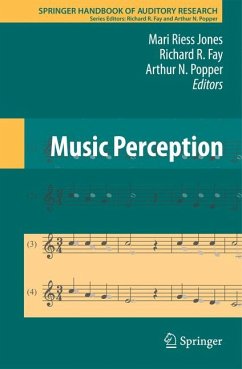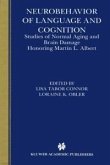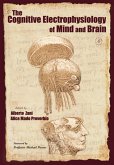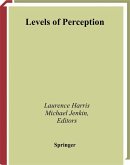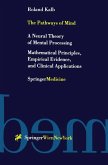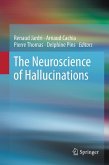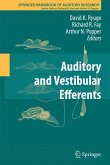Overview Mari Riess Jones, Richard R. Fay, Arthur N. Popper Music Perception: Current Research and Future Directions Mari Riess Jones The Perception of Family and Register in Musical Notes Roy G. Patterson, Etienne Gaudrain, and Thomas C. Walters A Theory of Tonal Hierarchies in Music Carol L. Krumhansl and Lola L. Cuddy Music Acquisition and Effects of Musical Experience Laurel L. Trainor and Kathleen A. Corrigall Music and Emotion Patrick G. Hunter and E. Glenn Schellenberg Tempo and Rhythm J. Devin McAuley Neurodynamics of Music Edward W. Large Memory for Melodies Andrea R. Halpern and James C. Bartlett
About the Editors: Mari Riess Jones is Full Professor in the Department of Psychology at The Ohio State University, Columbus, and Adjunct Professor of Psychology at the University of California, Santa Barbara. Arthur N. Popper is Professor in the Department of Biology and Co-Director of the Center for Comparative and Evolutionary Biology of Hearing at the University of Maryland, College Park. Richard R. Fay is Director of the Parmly Hearing Institute and Professor of Psychology at Loyola University of Chicago.
About the Series: The Springer Handbook of Auditory Research presents a series of synthetic reviews of fundamental topics dealing with auditory systems. Each volume is independent and authoritative; taken as a set, this series is the definitive resource in the field.
Dieser Download kann aus rechtlichen Gründen nur mit Rechnungsadresse in A, B, BG, CY, CZ, D, DK, EW, E, FIN, F, GR, HR, H, IRL, I, LT, L, LR, M, NL, PL, P, R, S, SLO, SK ausgeliefert werden.
"For advanced graduate students, post-doctoral researchers, and clinical investigators, Jones ... compile eight chapters that overview a relatively new field of psychoacoustic and hearing research involving perception of musical sound patterns. Scholars working in psychology, behavioral and brain sciences, cognition, physiology, development, and neuroscience in the US, UK, and Canada discuss theory and research related to the basics of musical note perception; the way relative pitch in music conveys tonal relationship to listeners ... and the ability to recognize melodies at different ages." (SciTech Book News, December, 2010)
"Music Perception deals precisely ... how listeners make sense of and garner meaning from the complex stream of nonrandom sound and silence that constitutes music. ... of interest to psychologists, acoustics researchers, and the musically inclined (lay or professional) ... . In general, the book is outstanding. It will not only inform people about the current exciting state of the research on music perception, but it should also serve as a model for how interdisciplinary research can richly inform a key topic of human experience." (Aaron Kozbelt, PsycCRITIQUES, Vol. 56 (5), February, 2011)
"Springer handbook is for advanced students and researchers interested in the perceptual processing of musical materials. ... suited for readers already knowledgeable of various basic fields ... . Indeed, the detailed, up-to-date and systematic presentation of theoretical debates, empirical results, and controversial aspects of the literature give the researcher and the motivated student a head start in the design of novel experiments ... . Music Perception Handbook is a precious research instrument. The community and the scientific field will undoubtedly benefit by this novel publication." (Bruno L. Giordano and P. L. Marston, Journal of the Acoustical Society of America, Vol. 129(6), June, 2011)

